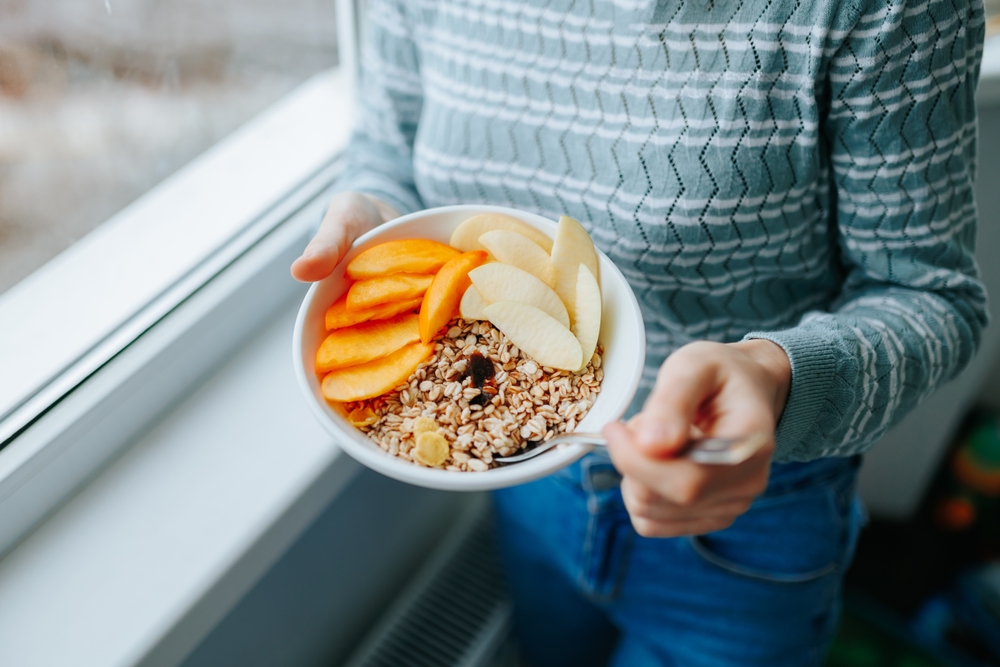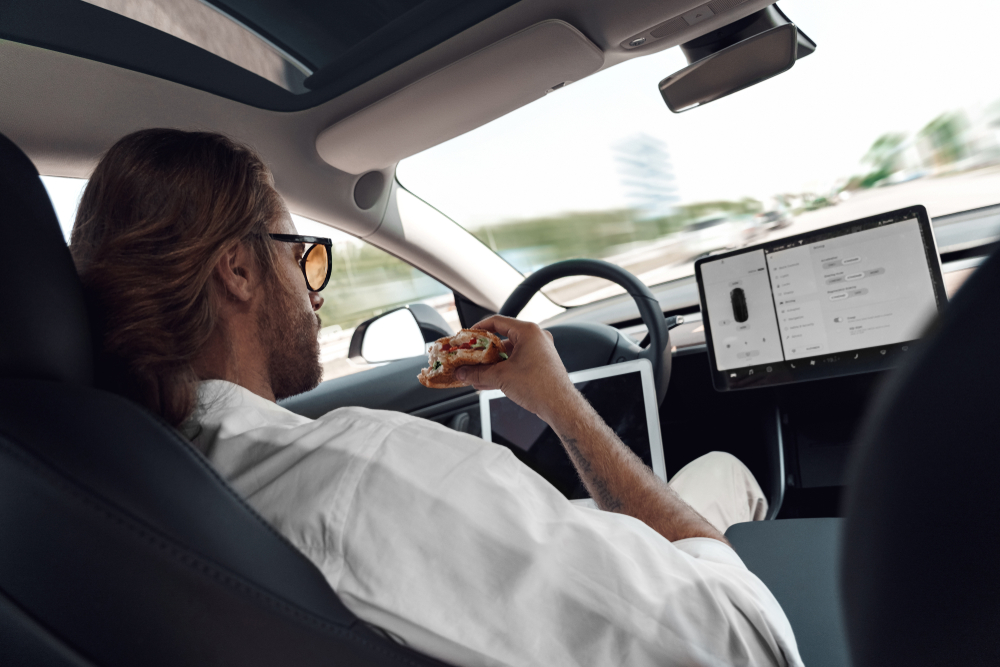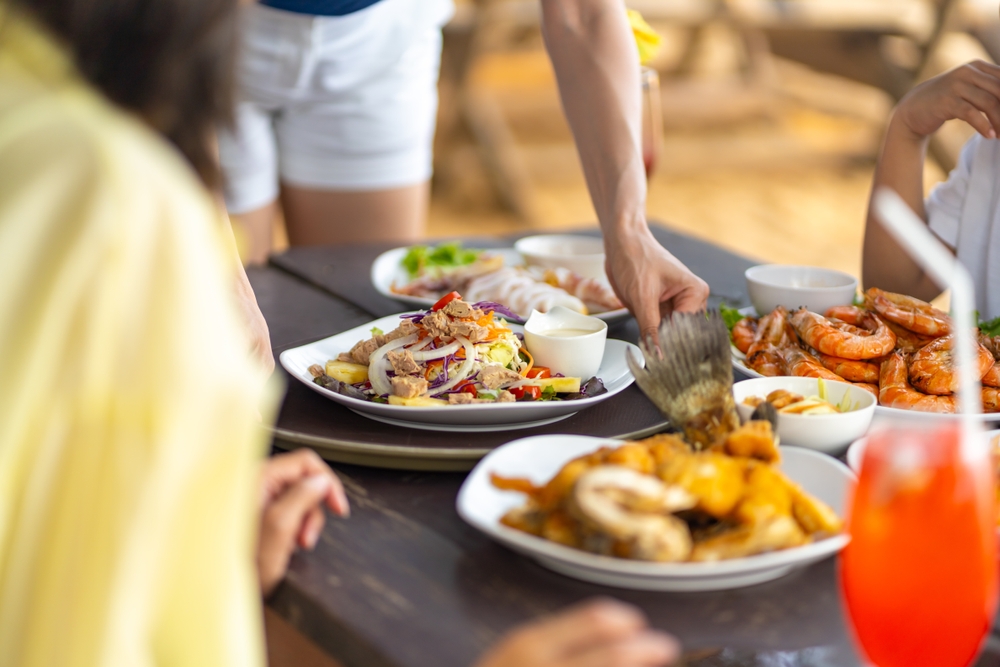Traveling doesn’t have to mean giving up on your healthy eating goals.

Hitting the road often leads to impulsive food choices, whether it’s grabbing fast food at the airport, indulging in gas station snacks, or giving in to endless vacation buffets. It’s easy to justify unhealthy eating when you’re away from home, but those choices can leave you feeling sluggish, bloated, and off track with your diet. The good news? You don’t have to sacrifice your health just because you’re traveling.
Eating smart on the road is all about planning ahead, making mindful choices, and knowing how to navigate tempting situations. With a little preparation, you can enjoy delicious meals without regretting them later. Whether you’re on a business trip, a family vacation, or a long-haul flight, these 11 simple strategies will help you stick to your diet, stay energized, and actually feel good while you travel.
1. Pack your own snacks to avoid unhealthy temptations.

One of the biggest reasons travelers fall off track is lack of preparation. When hunger strikes and your only options are vending machines or greasy fast food, it’s easy to make a choice you’ll regret, as reported by the writers at WebMD.
Packing your own snacks ensures you always have healthy options within reach. Bring protein bars, nuts, dried fruit, or pre-cut veggies in a small container. If you’re flying, TSA-friendly options like single-serving nut butter packets or granola bars can be lifesavers. Road trips allow for even more flexibility, so tossing a small cooler in the car with yogurt, cheese, and pre-made wraps can keep you fueled without resorting to drive-thru meals.
2. Stay hydrated to curb cravings and prevent overeating.

Dehydration often disguises itself as hunger, leading travelers to eat when they really just need water. The combination of dry airplane air, long car rides, and changing climates can leave you feeling sluggish and craving unnecessary snacks.
Keeping a reusable water bottle with you and refilling it regularly helps you stay hydrated and keep cravings under control, according to the writers at AARP. Herbal teas or electrolyte packets can be a great addition, especially if you’re traveling to a hot climate. When you feel the urge to snack, try drinking a glass of water first—you might realize you weren’t actually hungry after all.
3. Choose protein-packed breakfasts to keep you full longer.

Starting the day with a sugary pastry or carb-heavy meal can leave you crashing before lunchtime. A protein-rich breakfast helps stabilize blood sugar levels and keeps you satisfied for hours, reducing the temptation to snack on unhealthy foods, as stated by Isabel Vasquez of Health.com.
Look for eggs, Greek yogurt, or oatmeal topped with nuts and seeds instead of pancakes or sugary cereals. If you’re staying at a hotel, opt for scrambled eggs and fruit instead of muffins and waffles. For those on the go, protein shakes or overnight oats are easy options that provide lasting energy without weighing you down.
4. Research restaurant menus before you arrive.

When you’re hungry and staring at a menu filled with indulgent options, it’s easy to default to the least healthy choice. Checking menus in advance helps you plan your meal and stick to your diet without feeling overwhelmed.
Many restaurants list nutrition information online, allowing you to choose a balanced meal before you even sit down. If you’re unsure about portion sizes, consider ordering an appetizer as your main dish or splitting an entrée with a travel companion. Having a plan makes it easier to enjoy your meal without overindulging.
5. Follow the 80/20 rule to allow for flexibility.

Traveling is about enjoying new experiences, and that includes food. Sticking to your diet 100% of the time can feel restrictive, which might lead to binge eating later. Instead of being overly strict, aim for balance by following the 80/20 rule—making healthy choices 80% of the time while allowing yourself occasional treats.
This approach lets you enjoy local specialties without guilt. If you have a big indulgent dinner planned, balance it out with a lighter breakfast and lunch. Giving yourself flexibility makes it easier to stay on track long-term without feeling deprived.
6. Prioritize fiber-rich foods to aid digestion.

Traveling can mess with your digestion, leading to bloating and sluggishness. A lack of fiber is often the culprit, especially when eating out frequently. Choosing fiber-rich foods helps keep your digestive system running smoothly.
Look for whole grains, vegetables, and legumes when ordering meals. If fresh produce is limited, packing chia seeds, flaxseeds, or fiber supplements can help maintain gut health. A simple trick? Start each day with a piece of fruit to ensure you’re getting at least some fiber in your diet.
7. Be mindful of liquid calories that add up fast.

It’s easy to overlook calories in drinks, but sugary cocktails, sodas, and fancy coffee beverages can quickly derail a healthy diet. Many blended coffee drinks and frozen cocktails contain as many calories as an entire meal.
Opt for water, herbal tea, or unsweetened coffee when possible. If you’re in the mood for an alcoholic drink, stick to simpler options like a vodka soda or wine instead of sugary mixed drinks. Enjoying a drink here and there is fine, but staying mindful of what you’re consuming can prevent unnecessary calorie overload.
8. Eat slowly and listen to your hunger cues.

Eating too quickly often leads to overeating, as it takes time for your brain to register that you’re full. When traveling, it’s easy to rush meals, whether you’re on a tight schedule or excited about trying new foods.
Slow down and pay attention to how your body feels. Taking smaller bites, chewing thoroughly, and pausing between bites helps you recognize when you’re satisfied rather than stuffed. Not only does this help with portion control, but it also lets you fully enjoy the flavors of your meals.
9. Plan ahead for long travel days with healthy meal options.

Airport layovers, long car rides, and train journeys often mean limited food options, making it tempting to grab whatever is available. Planning ahead ensures you don’t get stuck with overpriced junk food.
If flying, look up which airport terminals have healthier food options or pack a meal to bring with you. Road trips offer even more flexibility—packing a lunch with sandwiches, salads, or protein-rich snacks can save you money and keep you on track. When healthy options aren’t available, choosing the best possible alternative—like a grilled chicken salad instead of a fried burger—can still make a big difference.
10. Don’t skip meals, even when you’re busy.

Skipping meals while traveling often leads to intense hunger and poor food choices later. If you go too long without eating, you’re more likely to overindulge at your next meal or reach for the first thing in sight.
Even if your schedule is packed, keep snacks on hand and try to eat at regular intervals. Something as simple as a handful of nuts or a protein bar can keep your energy levels stable and prevent overeating when you finally sit down for a meal.
11. Move your body to help balance indulgences.

Exercise doesn’t have to mean hitting the hotel gym—walking, hiking, or even stretching can help balance out travel indulgences. Moving your body regularly aids digestion, keeps energy levels high, and helps burn off extra calories.
Exploring a city on foot, renting bikes, or even doing a quick bodyweight workout in your hotel room are all great ways to stay active. Travel is about enjoying yourself, and keeping movement in your routine ensures you feel good while doing it.
